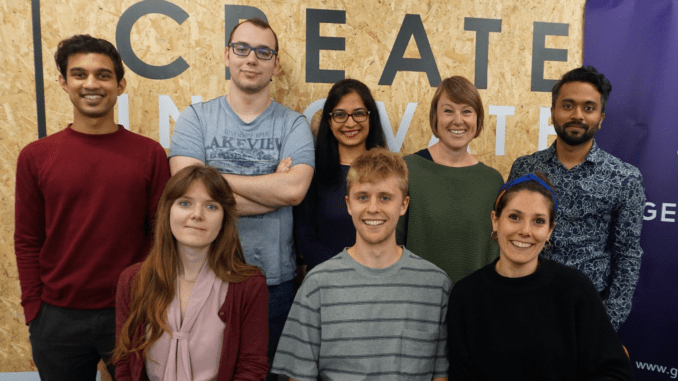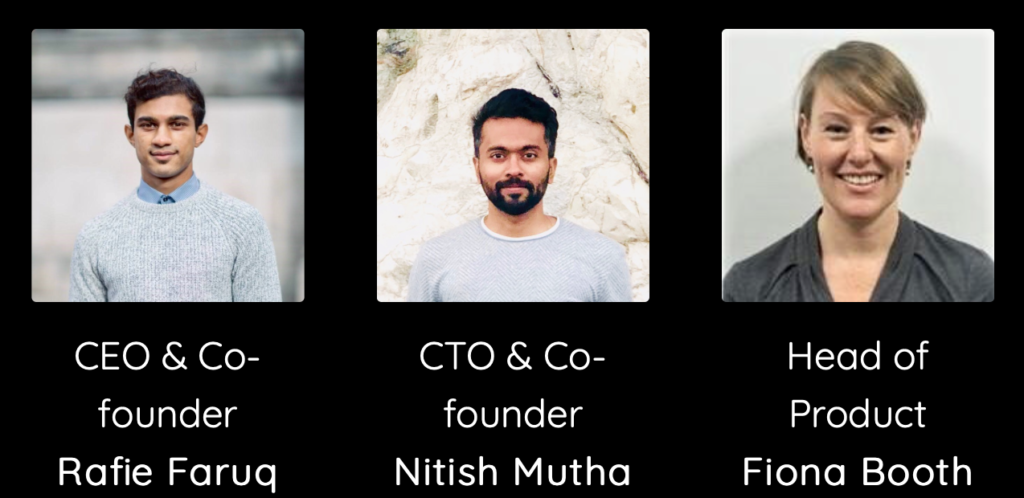
Genie AI, a startup with a focus on automating the delivery of a law firm’s knowledge at the point of contract drafting, has bagged £1.2m ($1.5m) in seed funding from Connect Ventures. The investment follows an earlier grant of £800,000 from the UK Government’s Research and Innovation initiative, giving the 13-strong company a total of £2m in funding. They are also piloting with Clifford Chance and Pinsent Masons, and working on a project with Withers.
Genie AI’s central offering is its SuperDrafter application, which syncs with a law firm’s KM and DMS to provide previous examples of relevant clauses to lawyers as they are drafting a contract.

And this is the key selling point of the application as far as Artificial Lawyer can see, as it delivers improved and automated knowledge delivery to the point of use, but without sucking up many hours of fee earner time in order to ‘hand hold’ the training of the AI. Not having to actively do training means lawyers can focus on their jobs, while also not needing to hire or re-direct resources to non-fee earner staff to handle tagging of clauses or legal language.
At present two of the pilots, with Clifford Chance and Pinsents, are focused on bank finance documentation, sometimes reaching 300 pages per contract. Having to manually tag everything that is relevant for such a document would be extremely time consuming.
Artificial Lawyer spoke to Rafie Faruq, CEO & Co-Founder, (see main team pic, far left), who explained: ‘This is AI-assisted drafting. There is so much past knowledge in law firms, but they only have access to a tiny part of that knowledge.’
‘SuperDrafter can recommend clauses as they are drafting. A document may start with doc automation, for example, and then Genie AI will take over the process. You can see what clauses have been used recently, what is most relevant, and what clauses have been used for which clients.’
‘It’s doing an auto-search into the DMS/KM systems. We are further along than other legal AI search systems on the market as we recommend for each scenario the best clauses, but there is also no need to manually train and tag language as is the case with other AI tools,’ he noted.
Artificial Lawyer asked how this was possible, given that many AI companies depend on manual tagging at present. Faruq explained that they have applied for a patent for their technology, which involves a neural network element, and it is this self-learning software that removes the need for lawyers to intervene in the training.

He added that while their approach provides a significant efficiency boost to lawyers, it’s not just about efficiency, as the system will quickly reveal ‘what is market’ i.e. standard, or accepted norms for certain types of clause in what can be long, niche and complex agreements.
That could help to reduce risk, and hopefully produce a better end product for the clients in terms of the final contract terms.
Commenting on how it feels to have gained £2m in funding over the last few months, Faruq said: ‘It’s just the beginning, so I don’t yet feel any great sense of achievement.’
He stressed that the real goal now was to engage with the legal market at a time when there was now serious levels of adoption of new legal tech solutions and that he and the team were ‘looking to the future’.
Also, in a statement, Lucy Shurwood, a partner at Pinsent Masons, said: ‘We believe that Genie will complement our existing suite of legal tech tools by allowing us to add an element of assessment in understanding whether a particular contractual provision is drafted according to, short of or goes beyond market practice, and ultimately whether provisions meet, exceed or fall short of particular client standards based on their preferences and documentation standards.’
‘This would provide invaluable insight for us and our clients and give us information that we would otherwise have to manually-review. We are excited to expand our trial of Genie AI across our UK Banking Teams and hope that, eventually, AI assessment will be implemented across all transactional services,’ she added.
While, Pietro Bezza, General Partner at Connect Ventures, added in a statement: ‘The legal industry is ripe for change and the founders’ vision will transform the contract category. Codifying legal language to build a system of intelligence is a hard problem and Rafie and Nitish are incredibly talented and determined to solve it.’
Interestingly, Lord Neuberger, Former President of the UK’s Supreme Court, is on the company’s board of advisors. They are also supported by UCL Innovation and Enterprise and are part of Barclays Eagle Labs Lawtech Accelerator in London.
Overall, interesting times for the world of legal AI. Just when it seemed that a few major brands had sewn up part of the market, new players emerge (as seen in a spate of recent stories in Artificial Lawyer) with challenger technology and new approaches. Their arrival also indicates that no matter how much consolidation is occurring at present, new businesses with compelling value propositions will always emerge and seek to take their place in the market. Has the legal tech/legal AI market ever been so dynamic? And ultimately this is all about one thing: improving the delivery of legal services.